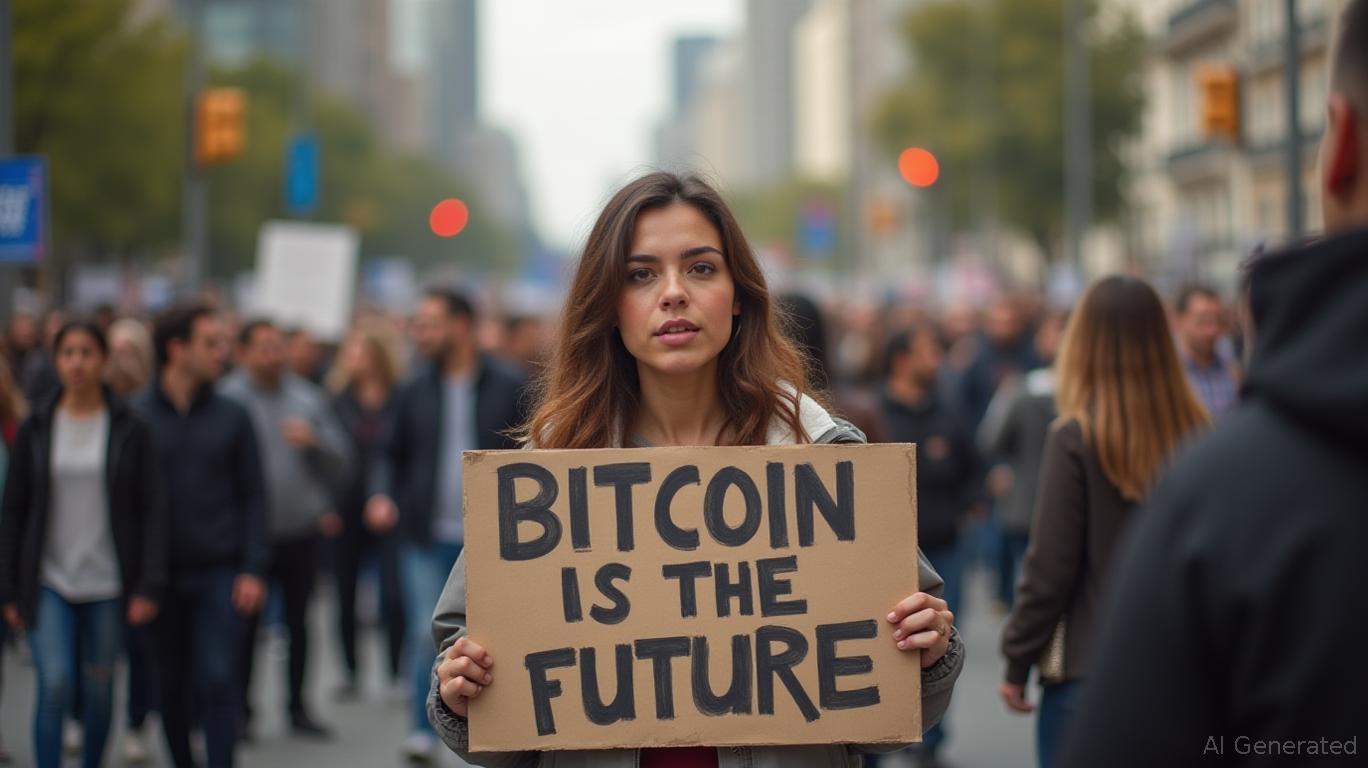U.S. Assistance for Peso Compared to Bitcoin Surge Amid Argentina’s Economic Turmoil
- U.S. Treasury proposes swap lines and peso purchases to stabilize Argentina’s currency amid economic turmoil. - Argentina’s 4.5% peso drop and high inflation drive citizens to stablecoins and Bitcoin as inflation hedges. - Bitcoin adoption rises despite U.S. support, with critics urging structural reforms over short-term liquidity fixes. - Milei’s government faces political scrutiny and fiscal challenges, with peso stability dependent on upcoming reforms and elections.

The U.S. Treasury has committed to taking steps to support Argentina’s peso as the country faces mounting financial and political instability. Treasury Secretary Scott Bessent stated that “every stabilization tool is under consideration.” Bitcoin to Join Gold on Central Bank Reserve Balance Sheets by 2030 [ 1 ] Plans include establishing swap lines with the Federal Reserve, direct intervention through peso purchases, and buying U.S. dollar-denominated Argentine government bonds using the Treasury’s Exchange Stabilization Fund. These actions follow a period of financial tension for Argentina, highlighted by a 4.5% weekly peso decline and a $1.1 billion reduction in central bank reserves in efforts to prop up the currency. ReutersUS Treasury chief: US ready to support Argentina, leaders... [ 5 ] Framed as a move to assist a “strategically vital partner” in the region, the U.S. intervention comes as President Javier Milei’s government contends with local political headwinds, a corruption probe involving his sister, and a notable electoral defeat in Buenos Aires.
Argentina’s financial turmoil has deepened as inflation, though lower than its highest point, remains in double figures. The falling peso is pushing Argentines to seek alternatives. Stablecoins and
Despite the U.S. aid, Bitcoin advocates remain doubtful, arguing that only comprehensive economic changes—not short-term infusions—will resolve Argentina’s worsening crisis. Economist Saifedean Ammous labeled Milei’s approach a “Ponzi scheme fueled by debt and inflation,” criticizing the government’s dependence on unsustainable interest rates that have peaked at 88% for recent bonds and a rapidly growing money supply. Nevertheless, U.S. backing has temporarily lifted market sentiment, with the Merval stock index jumping 9% in dollar terms after Bessent’s remarks. Still, experts warn that stabilizing the peso will depend on Milei’s capacity to enforce fiscal discipline and steer through the upcoming October mid-term elections.
Deutsche Bank’s latest analysis, though not specifically about Argentina, notes a wider move toward institutional Bitcoin adoption that could influence the nation’s economic landscape. The bank projects that central banks could add Bitcoin to their reserves alongside gold by 2030, citing its limited supply, inflation resistance, and improving market structure. Bitcoin to Join Gold on Central Bank Reserve Balance Sheets by 2030 [ 1 ] In Argentina, where trust in conventional assets is deteriorating, Bitcoin’s decentralized nature is expected to gain more traction. The country’s situation reflects global patterns, with corporate Bitcoin holdings now valued between $15–$20 billion amid rising institutional interest. Although Argentina hasn’t fully embraced this trend, widespread economic instability has set the stage for crypto’s popularity, especially among everyday users.
The complex relationship between U.S. financial assistance and the rising popularity of Bitcoin in Argentina underscores a multifaceted environment. While swap lines and currency interventions may offer brief relief, they do not solve Argentina’s fundamental issues. Bitcoin, on the other hand, provides a decentralized way to counter devaluation and instability, but lacks the regulatory framework needed for broad adoption. The U.S. Treasury’s focus on peso stabilization may slow Bitcoin’s path to becoming a reserve asset, yet the pressures driving Argentines toward crypto are unlikely to dissipate without major reforms. As Milei’s government manages ongoing political and fiscal tests, the potential for Bitcoin to work alongside traditional reserves remains a crucial element in Argentina’s economic future.
Disclaimer: The content of this article solely reflects the author's opinion and does not represent the platform in any capacity. This article is not intended to serve as a reference for making investment decisions.
You may also like
CandyBomb x POWER: Trade to share 4,387,500 POWER
New users get a 100 USDT margin gift—Trade to earn up to 1888 USDT!
Bitget Spot Margin Announcement on Suspension of DOG/USDT, ORDER/USDT, BSV/USDT, STETH/USDT Margin Trading Services
BGB holders' Christmas and New Year carnival: Buy 1 BGB and win up to 2026 BGB!